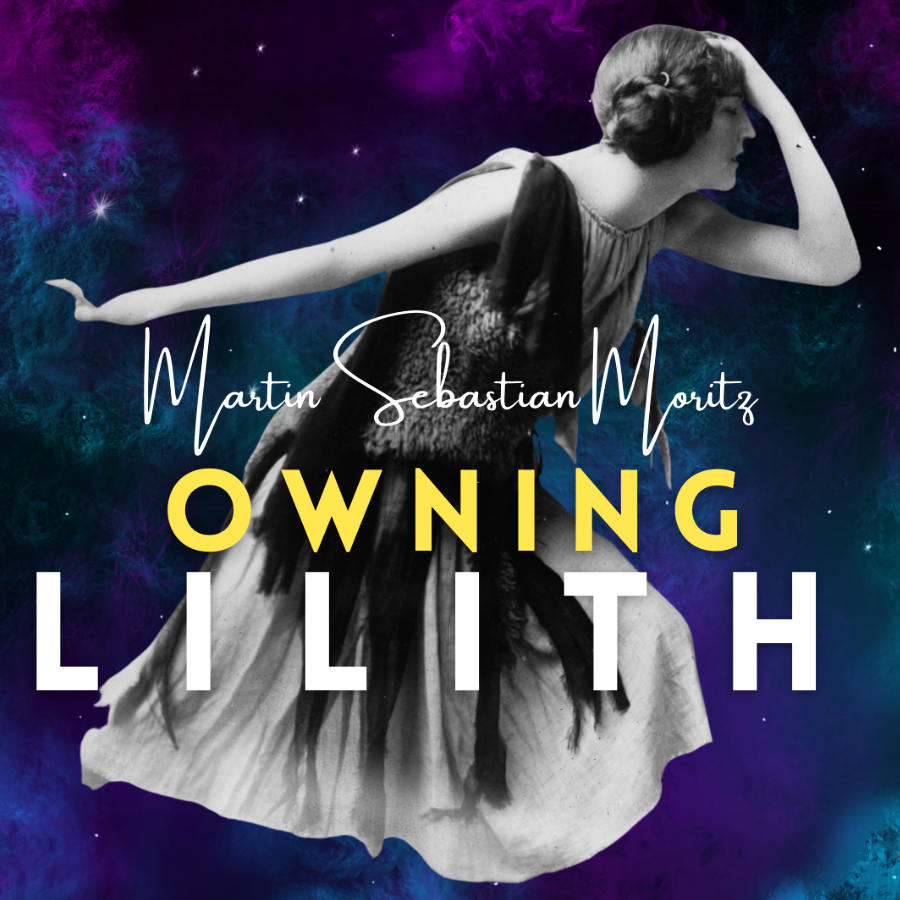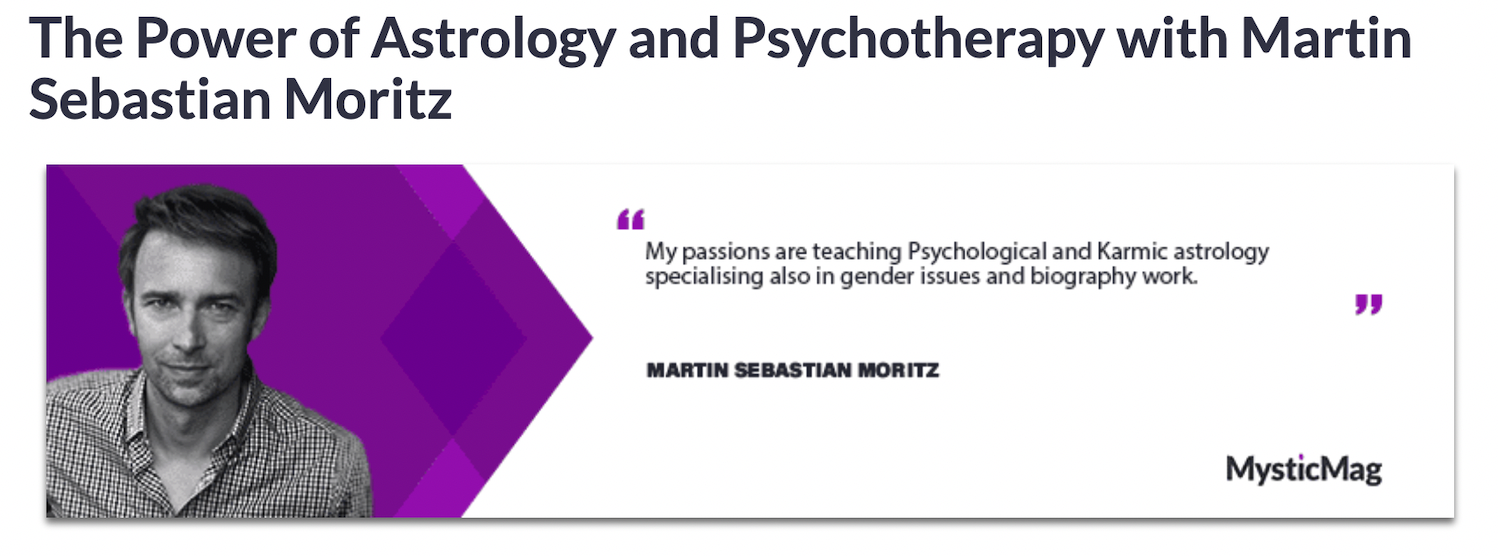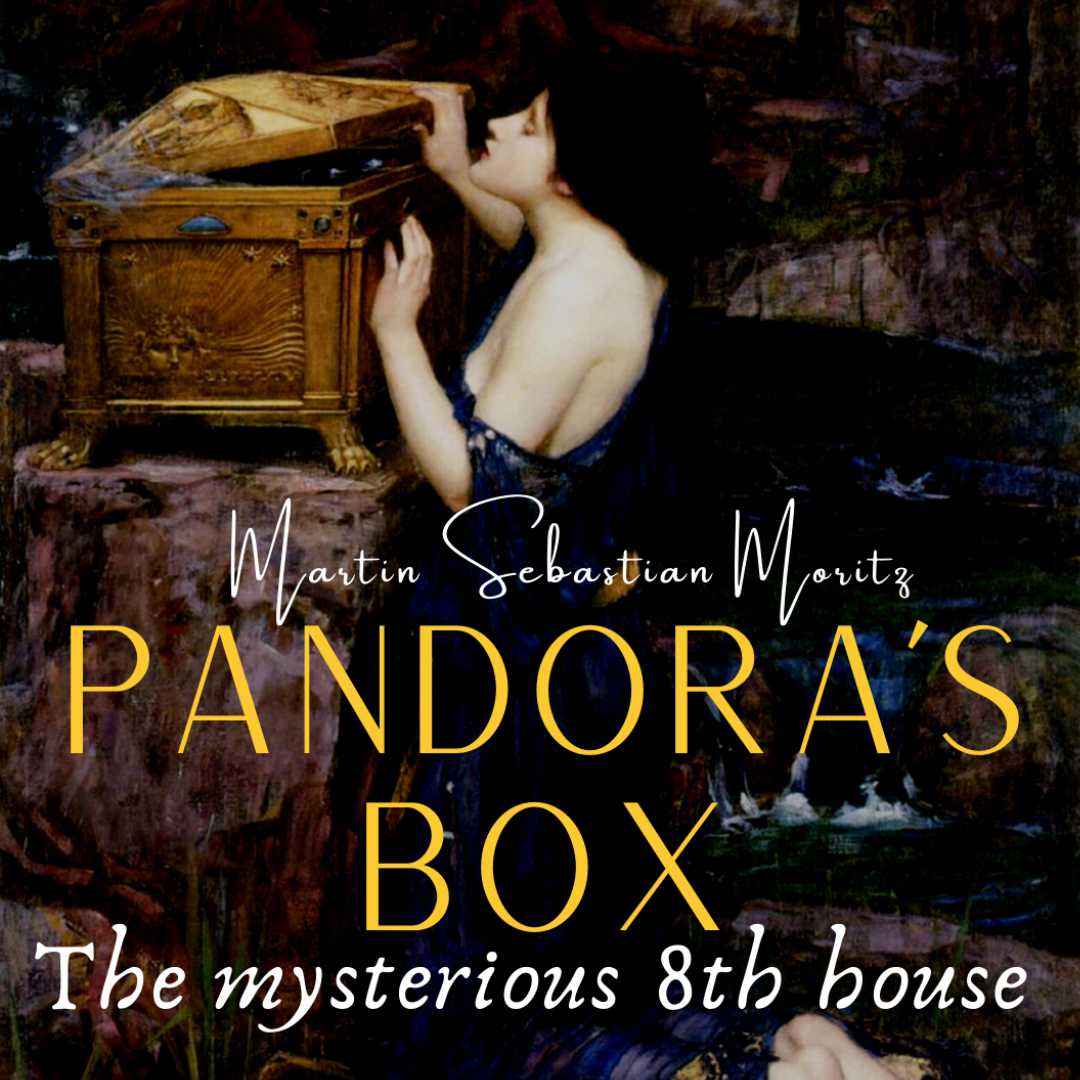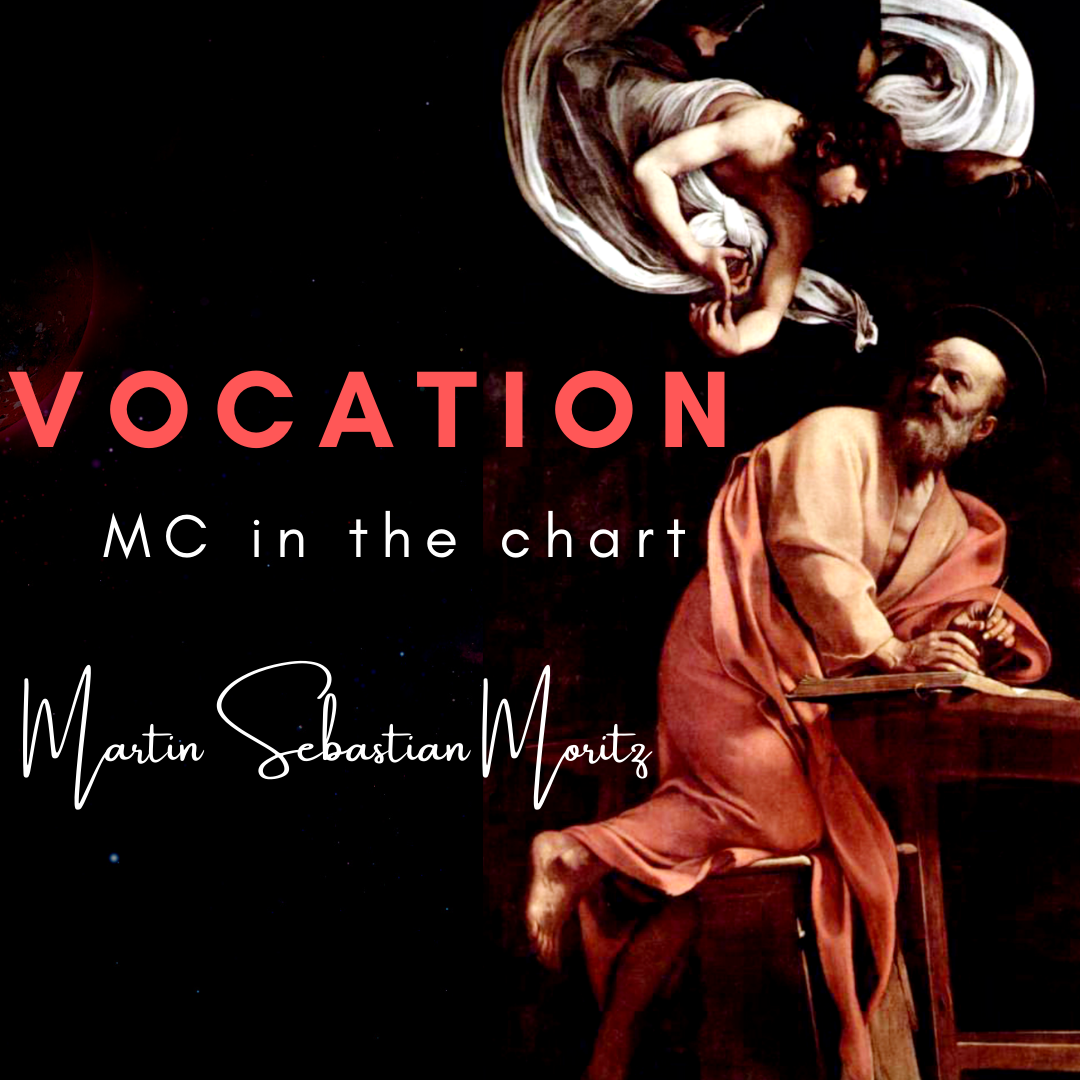Watch my video on the Black Moon Lililth and why drag queens are a modern Lilith archetype
Visit my shop for my in-depth webinar-series on Black Moon Lilith
Martin Sebastian Moritz
As psychotherapist and consulting astrologer, based in Hamburg and Berlin, I offer my services in German and English. My passions are teaching Psychological and Karmic astrology specialising also in gender issues and biography work.
I gave talks at NORWAC, the AA conference and the Astrological Lodge and am a guest speaker for MISPA (Mercury Internet School for Psychological Astrology). Also I write for German and Swiss astrology magazines, as well as for the UK Astrological Journal.
Horoscope of King Charles III and a closer look at those who made him who he is today
Horoscope of Queen Elizabeth II – a remarkable woman
‘Pandora’s Box: The Mysterious 8th House’ is a 360 Degrees analysis of the 8th house, the place in the chart which includes sensible issues like death, debts, possessiveness, entanglements, sexuality or boundary crossings. It links the somewhat fatalistic Hellenistic view of ‘descent into the underworld’ with more modern psychological interpretations of shadow work, transformation and resilience.
The deeper one digs, the more complex this house becomes, and ancient and modern approaches complement each other rather than contradict themselves. With biographical examples of fascinating personalities like Jane Goodall, Kaiser Wilhelm II, Truman Capote, John Dee, Elisabeth Kubler-Ross and Adolf Eichmann, the book is complemented by a detailed chapter of planets in the 8th house, 8th house rulership factors in the chart, and transits to the 8th house. Martin Sebastian Moritz’ book is both entertaining and insightful, a good read that will challenge any level of astrologer – particularly those in the thrall of the 8th house.
Visit my shop
Here you can download all my webinar recordings.
What is Psychological Astrology?
Psychological astrology considers the horoscope to be a reflection of the soul, or personality in a broad sense. Its aims are to help individuals gain a better understanding of themselves. Also to accept all sides of their personality: the “good” and the “bad”.
When psychological astrologers interpret a horoscope and give advice, they will generally try to avoid being judgmental. They emphasise taking personal responsibility for one’s own actions and the importance of free will. An individual’s everyday life is not seen as ruled by malefic or benefic planets. The horoscope is considered a mere tool to help identify an individual’s nature and potential for psycho-spiritual growth.
Psychologically based astrology concentrates on life’s opportunities. It shows the possible difficulties reflected in the horoscope. Instead it tries to help people to find constructive ways of actualising their inner potential.
Consultation
A consultation with a psychologically orientated astrologer is not equivalent to psychotherapy, however. Many astrologers have immersed themselves in the ideas of psychology, with a number holding degrees in psychology, but they are not necessarily licensed psychologists or psychotherapists. Conversely, although some licensed psychologists work with astrology, this is often done in secret to avoid discrimination from colleagues or the risk losing their job.
It combines personality theories and diagnostic tools. As a personality theory, it discloses how the dynamics of the psyche are reflected in external conditions which supply a stimulus to psycholocial maturation. As diagnostic tool, it allows crucial insights into fundamental psychological and spiritual issues which can be the source of suffering and unhappiness.
The astrological chart symbolises the unfolding story of our soul DNA which is influenced by the way we live our special character traits.
History of Psychological Astrology
Several astrologers pursued the theories of Carl Gustav Jung in their writings, teachings and practice. One of the first astrologers to combine Jungian psychology with astrology was Dane Rudhyar and his protégé, Alexander Ruperti. Rudhyar termed it “humanistic astrology,” the subject of his monumental volume, The Astrology of Personality, published in 1936. Psychological astrology, however became firmly established in the late twentieth century with the books and lectures of Liz Greene and Stephen Arroyo who were both strongly influenced by the Jungian model.
In 1983, Liz Greene and Howard Sasportas, a psychosynthesis psychotherapist, founded the Centre for Psychological Astrology in London. In 2015 MISPA (Mercury Internet School of Psychological Astrology) was founded by John Green.
Fulfilling Needs
In the 1970s, in his twelve-volume series, The Principles and Practice of Astrology (Llewellyn 1975), Noel Tyl has allied the psychological need theory with astrological symbolism. This analytical blend is developed fully in his book Holistic Astrology – The Analysis of Inner and Outer Environment (1980). In the light of the psychological need theory, he interprets the horoscope “as a process of lifelong conditioning, where individuals are predisposed to present individualized needs to the environment. This processs identifies how we act, who we are, and how we fit into the world. Fulfilling destiny, in modern terms, is fulfilling needs.”
Source: Astro-Wiki












